
|
Getting your Trinity Audio player ready...
|
Austria’s far-right Freedom Party (FPO) achieved a historic victory in Styria’s state election on Sunday, marking the first time it has claimed leadership in the region. This significant win follows the party’s strong performance in September’s general election and underscores its growing influence amid ongoing national coalition negotiations.
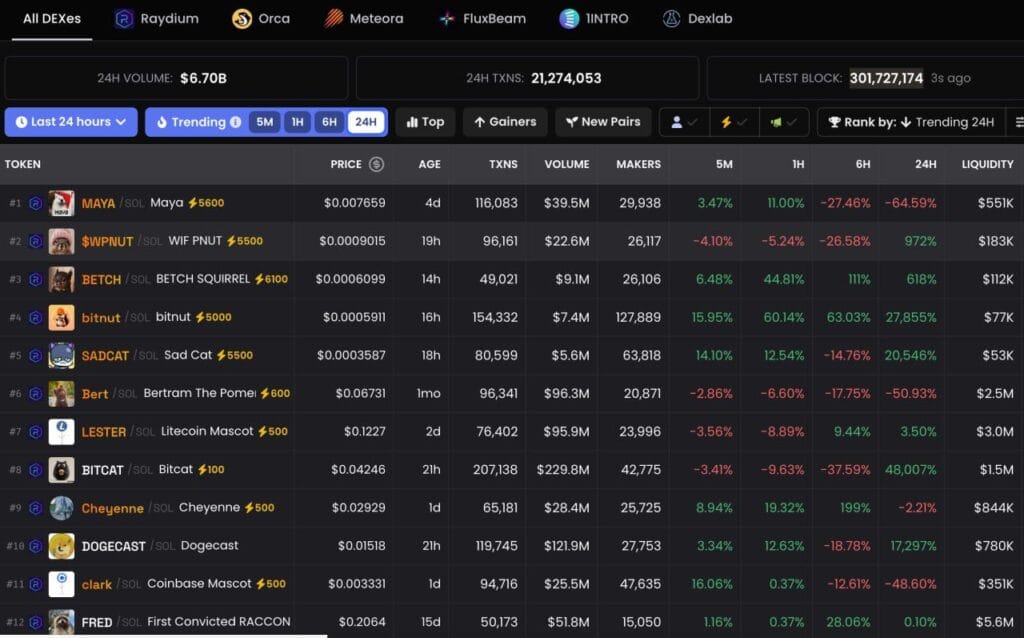
Styria, home to Graz—Austria’s second-largest city—holds limited immediate national sway. However, this outcome adds pressure on political leaders striving to establish the nation’s first three-way coalition government since 1949.
This is only the second state the FPO has ever won. The first was Carinthia, previously a stronghold of the party under Joerg Haider during his leadership in the late 1990s and early 2000s.
“There’s been a landslide in Styria. I didn’t expect such a resounding result,” said Stefan Hermann, the FPO’s deputy leader in Styria, during an interview with national broadcaster ORF.

According to a projection by pollster Foresight for ORF and APA, the FPO is leading with 35.3% of the vote, followed by the conservative People’s Party (OVP) at 26.6%. The estimate, which is based on 70% of votes counted, has a margin of error of 1 percentage point.
For the first time since World War II, neither the OVP nor the Social Democrats (SPO) have emerged victorious in Styria. This marks a dramatic shift in the political landscape of the state, famously known as the birthplace of actor Arnold Schwarzenegger.

Despite its success, the FPO will need to form a coalition to secure a majority in Styria’s state assembly and establish a governing administration. Unlike national elections, where the president decides who is tasked with forming a government, Styria’s rules automatically grant the leading party—now the FPO—the opportunity to set up a state government.
This victory reinforces the FPO’s growing foothold in Austrian politics, signalling a changing tide as the country navigates complex coalition talks at the federal level.
“There’s been a landslide in Styria. I didn’t expect such a resounding result.”
— Stefan Hermann, Deputy Leader of the Freedom Party in Styria
- Tottenham Hotspur 1–4 Arsenal: Igor Tudor Delivers Brutal Reality Check After Derby Defeat
Derby Disaster at Tottenham Hotspur Stadium
Tottenham Hotspur endured a humbling 4–1 defeat against fierce rivals Arsenal in the latest North London Derby, handing new head coach Igor Tudor a painful first loss in charge.
Tudor, who had won his opening match at each of his previous five managerial posts, was brought back to earth as Arsenal exposed Spurs’ physical and psychological shortcomings in the second half.
The two sides went into halftime level, but the gap in quality became undeniable after the break.
How the Game Unfolded
Arsenal struck first through Eberechi Eze, finishing off a low delivery from Bukayo Saka.
Spurs responded almost immediately. Randal Kolo Muani capitalised on a mistake by Declan Rice and drove forward before firing low into the net — his first goal under Tudor.
However, Arsenal seized full control in the second half. Viktor Gyokeres curled in a superb effort from distance before Eze grabbed his second of the night following a deflected sequence involving Joao Palhinha. Gyokeres then added a late fourth to seal an emphatic victory.
A potential second for Kolo Muani was ruled out after a foul in the buildup — a moment that could have changed the momentum.“Stay Humble” – Tudor’s Seven-Word Mantra
After the game, Tudor did not hide from the harsh reality.
He admitted there is currently a “big gap” between the two sides and described Arsenal as possibly the best team in the world “in this moment.”
But the defining message to his players was clear:
> “Stay humble — that is the key.”Tudor emphasised that humility, hard work, and honest self-reflection are now non-negotiable at Spurs. He called on every player to “look in the mirror” and change habits, insisting that only serious commitment will close the gap.
Injuries and Structural Problems
The Croatian manager revealed he has inherited a squad severely impacted by injuries, with up to 10 senior players unavailable. He hinted that reinforcements such as Pedro Porro and Kevin Danso could return soon, offering defensive stability.
For now, though, Tottenham are forced to improvise — at times deploying midfielders in defensive roles — a situation Tudor described as unprecedented in his career.
Psychological and Physical Gap
Perhaps the most telling part of Tudor’s press conference was his assessment of the difference between the teams:> “Two totally different worlds. Psychological and physical worlds.”
He acknowledged that Arsenal’s system has been built over years — recruiting the right profiles, sharpening mentality, and developing tactical cohesion. In contrast, Tottenham are at the beginning of a reset.
What Next for Spurs?
With 11 league games remaining, Tudor insists there is enough time to improve. But he was honest: transformation cannot happen in three or four training sessions.
The focus now is clear:
Reset mentality
Increase physical intensity
Build a true team identity
Reintegrate injured players
The defeat may sting, but for Tudor, it has clarified the scale of the mission ahead.
This was more than just a derby defeat. It was a mirror moment for Tottenham Hotspur.
If Tudor’s message of humility and hard work takes root, this painful afternoon could mark the beginning of genuine change.
If not, the gap to Arsenal — and the Premier League elite — may only grow wider.For more Premier League analysis and exclusive football features, stay connected with Danchima Media.
- Luis Díaz Faces Contract Challenge at FC Bayern Munich — Mandatory German Lessons & Heavy Fines.
Luis Díaz’s contract at Bayern Munich reportedly includes a rare and strict language clause that goes beyond typical performance conditions — the Colombian winger is required to learn German and demonstrate ongoing progress, or risk significant financial penalties.
According to reports from German outlet Bild and multiple international news sources, the clause requires Díaz to:
• Attend two to three German language lessons per week during the season.
• Undergo internal evaluations that measure his progression in comprehension and speaking skills.
Failure to comply or show sufficient improvement isn’t just a formality — Bayern Munich could fine him between €5,000 and €50,000, with penalties deducted directly from his salary if progress isn’t evident.
Why the Clause Matters
Bayern’s management views language proficiency as more than cultural integration — it’s seen as crucial to:
Team communication on and off the pitchEnhanced understanding of tactical instructions
Stronger integration into German life and club cultureThe club’s policy isn’t widely mandated across the Bundesliga, making this contract setup unusual for a player of Díaz’s profile. While many top European clubs encourage language learning, few enforce it with formal contractual penalties.

Díaz’s Position
Sources say Díaz — who communicates with teammates in English and Spanish — has acknowledged the language barrier as his biggest off-field challenge since arriving in Germany. He’s described learning German as difficult but has expressed a willingness to integrate fully.
On the field, Díaz has been a standout performer since his summer transfer from Liverpool, scoring goals and contributing to Bayern’s attack. However, the off-field challenge now poses a unique pressure point in his adaptation.This story is still developing — further details on Díaz’s progress and Bayern’s enforcement of the clause are expected.
- Bayern’s €50K Warning to Luis Díaz: Learn German or Pay the Price!
🚨🚨 BREAKING: Luis Díaz’s contract at FC Bayern Munich reportedly includes a mandatory German language clause 🇩🇪
According to BILD Newspapers, the Colombian winger is required to attend German classes as part of his contractual obligations.
Failure to demonstrate sufficient progress in language evaluations could reportedly result in fines ranging from €5,000 to €50,000.
The clause highlights Bayern’s emphasis on integration, communication within the squad, and long-term commitment to the club’s culture.
More details expected as the story develops.
- Spanish Police Arrest Hacker Who Booked Luxury Hotels for Just One Cent
€1,000 Rooms Booked for €0.01
Spanish authorities have arrested a 20-year-old man accused of exploiting a hotel booking platform to reserve luxury rooms for just one cent per night.
According to the National Police Corps, the suspect allegedly manipulated the payment validation system of an online booking website, making high-end hotel reservations appear fully paid, when in reality, only €0.01 was charged.
Officials say this is the first known cybercrime in Spain using this specific payment manipulation technique.
How the Scheme Worked
Investigators revealed that the suspect altered the validation process of an electronic payment platform.
At first glance, transactions appeared legitimate. However, days later when the payment processor transferred funds it became clear that only a minimal amount had been received.
Rooms costing up to €1,000 per night were secured for almost nothing.
Arrested in a Luxury Madrid Hotel
At the time of his arrest, the suspect was staying at a luxury hotel in Madrid, with a four-night booking totaling €4,000.
Authorities confirmed:
He had stayed at the same hotel multiple times
Total damages exceeded €20,000
Minibar charges and additional expenses were allegedly left unpaidThe investigation began after an online booking platform flagged suspicious payment activity earlier this month.

The one being Cybersecurity Alarm Bells Ringing
Police described the cyberattack as highly targeted, specifically designed to bypass payment confirmation safeguards.
“This is the first time we have detected a crime using this method,” authorities stated.
Cybersecurity experts warn the case highlights potential vulnerabilities in digital commerce systems — particularly in automated payment validation processes.

Spanish authorities are now examining whether similar attacks may have been carried out elsewhere. Further charges could follow depending on the outcome of the ongoing investigation.
Stay with Danchima Media for updates on this developing cybercrime case.
- Crypto Isn’t Crashing — It’s Being Squeezed by Liquidity
Crypto markets are bleeding again. Bitcoin has printed multiple red candles, Ethereum is under sustained pressure, and altcoins are sliding in synchronized fashion. The usual explanations are making the rounds: blame the Federal Reserve, blame politics, blame tariff noise, blame sentiment. But this time, the headlines are distractions. The real story is liquidity.
What we are witnessing is not a structural collapse of crypto. It is not 2022 all over again. There has been no catastrophic exchange failure, no systemic fraud unraveling, no emergency rate-hike shock. Instead, this correction is unfolding against the backdrop of a macro liquidity squeeze — a quieter force, but one that is just as powerful. At the center of it sits the Treasury General Account (TGA), the U.S. government’s account at the Federal Reserve. When the Treasury refills that account, money does not appear from thin air; it is pulled out of the financial system. Bank reserves decline, cash tightens, leverage becomes uncomfortable, and risk assets feel the pressure first.
For My Side
Crypto is the most liquidity-sensitive major asset class in global markets. It thrives when capital is abundant and hunts for yield. It suffers when cash is drained and positioning unwinds. That sensitivity is a feature, not a flaw. It is why crypto rallies explosively in expansionary phases — and why it corrects sharply when liquidity contracts. The recent weakness across equities and metals reinforces the point: this is broader than blockchain. It is a macro tightening impulse, even without aggressive rate hikes from the Fed.
People celebrating the Fasching day.
The mistake many investors make is confusing cause with correlation. Yes, the Federal Reserve influences liquidity conditions, but not every market downturn is a direct response to hawkish policy. Today, inflation expectations are more stable than in 2022, and the Fed is not in panic-tightening mode. Yet liquidity can still tighten through fiscal mechanics. When the Treasury increases issuance and rebuilds cash balances, the system absorbs the impact. Markets adjust. Risk compresses. Crypto reacts faster than most.
This is why narratives centered on fear, uncertainty, and political drama miss the bigger picture. Liquidity — not headlines — drives cycles. When liquidity expands, crypto leads. When liquidity contracts, crypto corrects. It is mechanical. It is structural. And it is temporary.
History suggests that once Treasury refilling slows and reserves stabilize, risk assets often rebound. Crypto, being high-beta, tends to recover with force. That does not mean volatility disappears, nor does it guarantee an immediate rally. It simply means the present drawdown looks more like a reset than a collapse. A repositioning phase, not an obituary.
The critical indicators now are not social media sentiment or short-term price swings, but TGA trends, bank reserve data, dollar strength, and Treasury issuance pace. These are the plumbing variables that matter. Ignore them, and every red candle looks like the end of the world. Understand them, and corrections begin to look like part of a larger liquidity cycle.
Crypto is not crashing because of the Fed. It is reacting to a liquidity squeeze engineered by fiscal mechanics. That distinction matters. In markets, survival belongs to those who understand the difference between structural decay and cyclical compression. Right now, this looks like compression. And compression, historically, has a release valve.






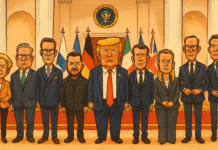


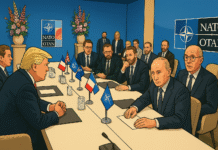
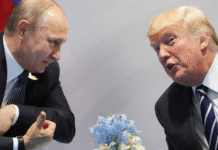


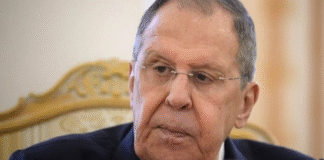

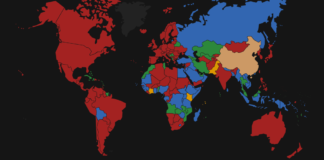


Bwer Company is a top supplier of weighbridge truck scales in Iraq, providing a complete range of solutions for accurate vehicle load measurement. Their services cover every aspect of truck scales, from truck scale installation and maintenance to calibration and repair. Bwer Company offers commercial truck scales, industrial truck scales, and axle weighbridge systems, tailored to meet the demands of heavy-duty applications. Bwer Company’s electronic truck scales and digital truck scales incorporate advanced technology, ensuring precise and reliable measurements. Their heavy-duty truck scales are engineered for rugged environments, making them suitable for industries such as logistics, agriculture, and construction. Whether you’re looking for truck scales for sale, rental, or lease, Bwer Company provides flexible options to match your needs, including truck scale parts, accessories, and software for enhanced performance. As trusted truck scale manufacturers, Bwer Company offers certified truck scale calibration services, ensuring compliance with industry standards. Their services include truck scale inspection, certification, and repair services, supporting the long-term reliability of your truck scale systems. With a team of experts, Bwer Company ensures seamless truck scale installation and maintenance, keeping your operations running smoothly. For more information on truck scale prices, installation costs, or to learn about their range of weighbridge truck scales and other products, visit Bwer Company’s website at bwerpipes.com.